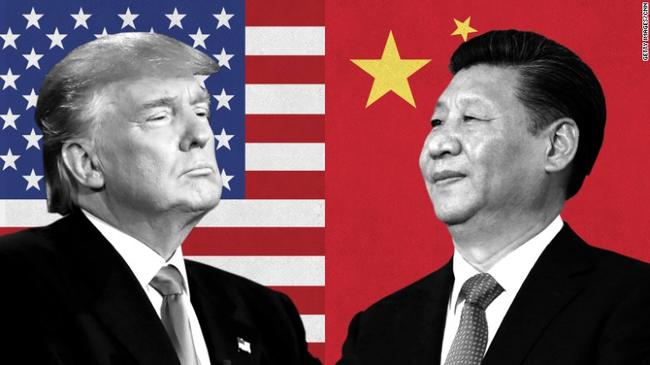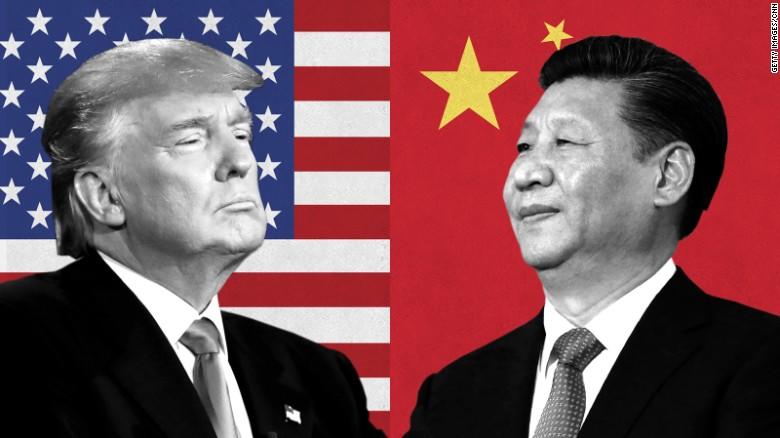
In a must-read piece detailing the evolution of the US-China relationship from productive partnership to bitter rivalry, WSJ reported that back in January, President Trump resisted pressing China to be more transparent about the emerging virus, and the risks it might pose to the global community.
Since President Trump revoked funding for the WHO last month and a British newspaper appeared to confirm that western intelligence agencies (including US intelligence) were investigating the possibility that the virus might have leaked from a biolab in Wuhan, hostilities between Beijing and Washington have taken off, with China’s Foreign Ministry on Wednesday prodding Secretary of State Mike Pompeo to show ‘proof’ that the virus came from the Wuhan lab.
Before critics jump on this tidbit, and try to portray the administration’s recent rhetoric against China as cynically political, it’s worth remembering that the WHO was praising China’s response as exemplary, helping to prop up Beijing’s lies. The US was led to believe China was much more on top of things than it turned out to be. That Trump wanted to try and curry some favor after the bitterness of the trade talks isn’t all that surprising. Besides, we doubt any pressure from Trump would have averted China’s dissembling.
Even as he has presided over a China policy many see as the toughest in 40 years of relations, Mr. Trump has frequently praised President Xi and talked of their friendship—a tactic administration officials say is meant to give Chinese leaders an opening to meet U.S. demands for change.
Early this year, several of Mr. Trump’s political advisers inside and outside the campaign urged him to take on China more directly, which they argued would have bipartisan appeal. One idea they suggested was a special commission to investigate the origins of the virus and whether Beijing responded sufficiently to control the outbreak.
Mr. Trump twice declined suggestions from his team in January to press Mr. Xi for more transparency about the virus’s causes and symptoms, in one case saying that the criticism could cause Beijing to be less helpful, said White House officials.
Domestic pressures in both the U.S. and China are likely to aggravate the already strained relations. Supporters of Mr. Biden also have produced attack ads focused on China.
Mr. Xi, too, has faced criticism at home over the coronavirus, and his administration has sought to project a sense of strength in dealing with the U.S. as he tries to revitalize an economy stalled by the pandemic, manage high unemployment and quash persistent antigovernment unrest in Hong Kong.
After Barack Obama’s turn at appeasment, which saw China ramp up its efforts to steal US innovations and technology, President Trump swept into office with a promise to crack down on Beijing. Since then, the distrust has only deepened, with two-thirds of Americans saying they no longer trust China. Meanwhile, the federal government is upping the pressure on China like never before.
The Trump administration has moved to involve much of the U.S. government in a campaign that includes investigations, prosecutions and export restrictions. Nearly every cabinet and cabinet-level official either has adopted adversarial positions or jettisoned past cooperative programs with Beijing, an analysis of their policies showed.
Chinese officials, for their part, are following through on President Xi Jinping’s call last fall to resist anything they perceive as standing in the way of China’s rise. They have stepped up military activities in the contested South China Sea and intimidation of Taiwan, a U.S. ally, and state media has issued extraordinary public denunciations of Secretary of State Mike Pompeo.
The coronavirus pandemic has deepened the rancor, bringing relations between the two to a modern-day nadir. Both governments are forgoing cooperation and trying to outmaneuver each other to shape events in the post-pandemic world order.
President Trump, who has sharply criticized China for its handling of the outbreak, has said he is considering using tariffs and other ways to collect compensation for it from Beijing, though senior officials signaled this week that the administration is holding off on punishing China economically.
Once the virus has finally been subdued – however long that takes – the biggest takeaway here is that there has been a dramatic paradigm shift in US-China relations. We expect tensions will only worsen from here.

